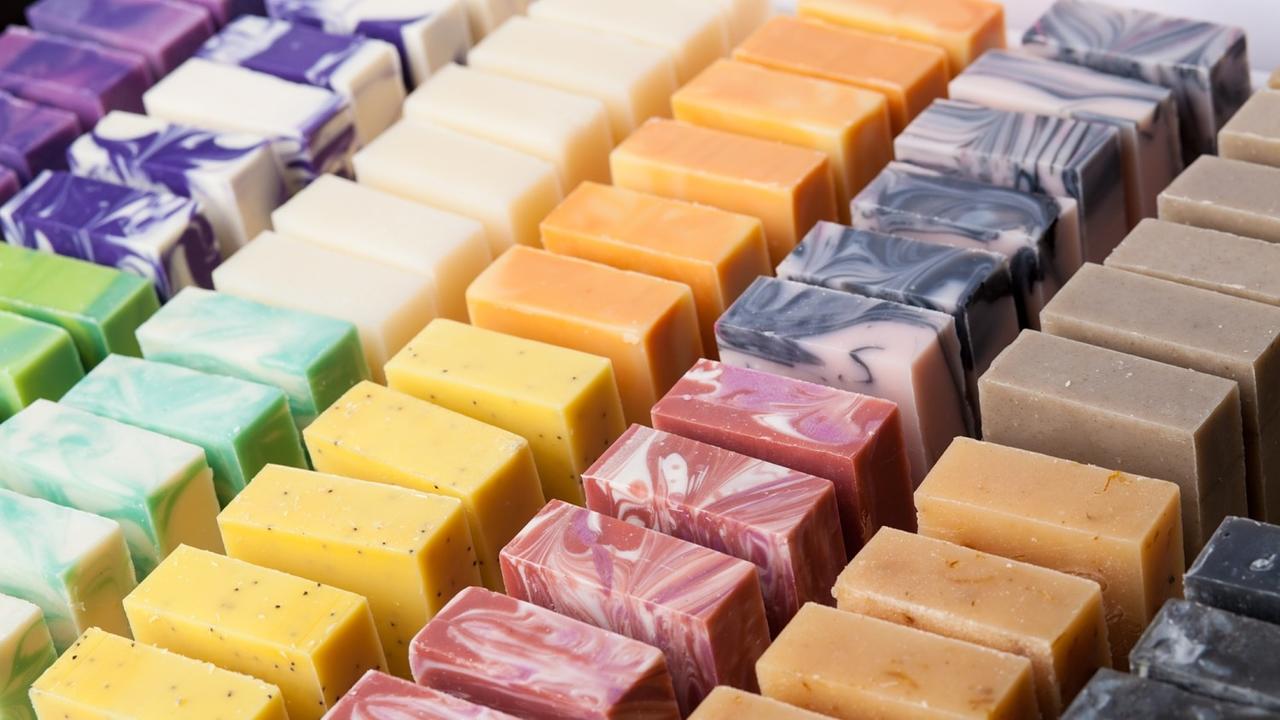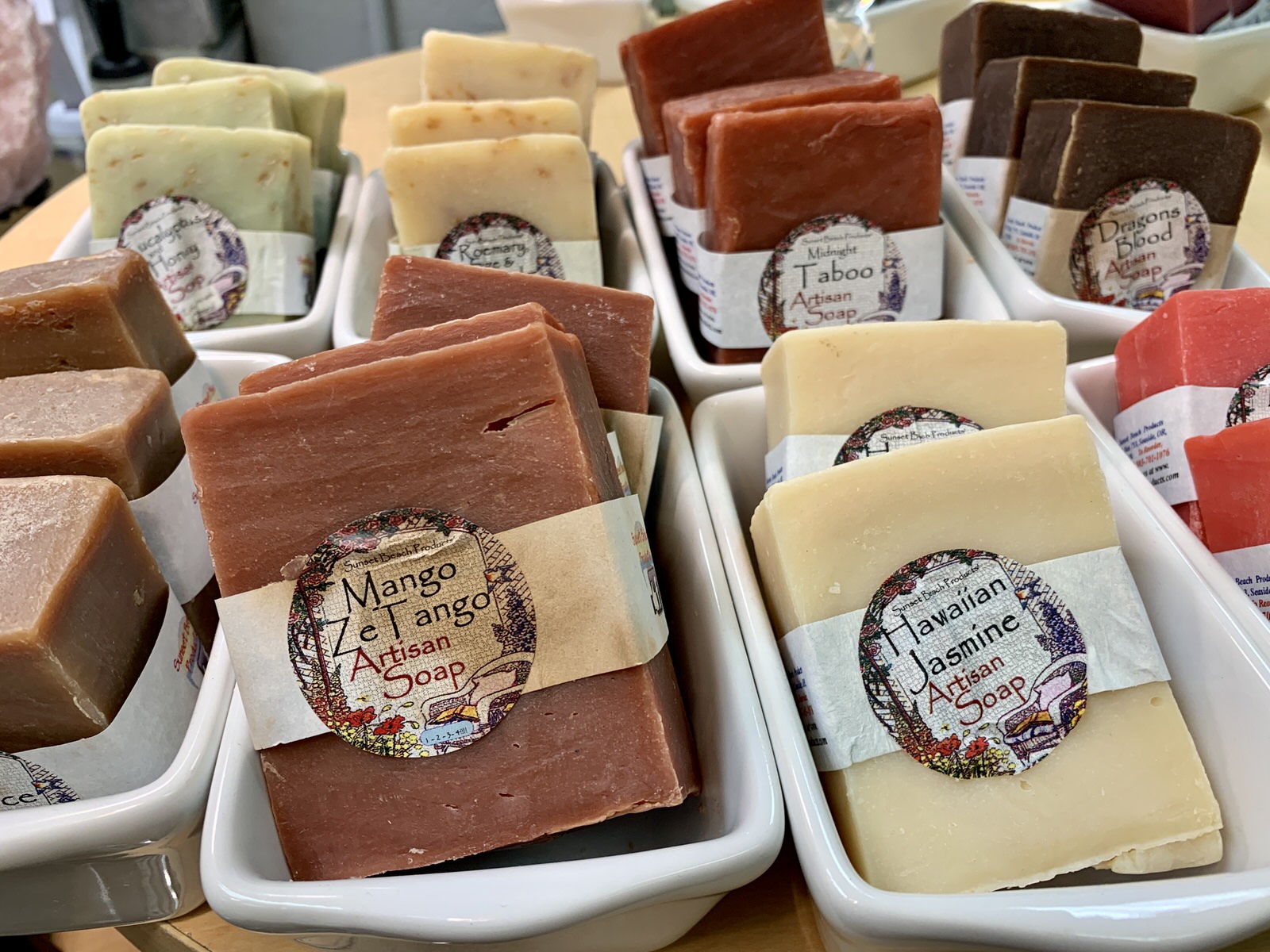
In the bustling world of skincare, there's a growing demand for products that are gentle, natural, and effective. Handmade organic soaps for sensitive skin are a perfect blend of art and science, offering a lucrative opportunity for those looking to make money while providing a valuable service. Imagine transforming your kitchen into a soap-making laboratory, where you can create artisan soaps that not only cleanse but also nourish and pamper the skin. If you're ready to dive into this rewarding venture, let's explore how you can turn your passion into profit.
Understanding the Market for Organic Soaps
Before you start your soap-making journey, it's crucial to understand the market. Organic soaps are not just a trend; they are a necessity for many people with sensitive skin. According to the Global Wellness Institute, the global wellness market is worth over $4.5 trillion, with a significant portion dedicated to natural and organic skincare products. This market is driven by consumers who are increasingly conscious about the ingredients they put on their skin.
Why Organic Soaps?
Organic soaps are made from natural ingredients that are free from harsh chemicals, synthetic fragrances, and preservatives. These soaps are gentle on the skin, making them ideal for people with sensitive skin, eczema, or other skin conditions. Moreover, the demand for natural and organic products is on the rise, with consumers willing to pay a premium for high-quality, handmade soaps.
Getting Started with Soap Making
Soap making is both an art and a science. It involves combining oils, lye, and water to create a chemical reaction called saponification. This process transforms the ingredients into soap. Here are the basic steps to get you started:
Gather Your Ingredients
- Oils and Fats: Choose a combination of oils and fats that are gentle on the skin. Common choices include olive oil, coconut oil, shea butter, and cocoa butter.
- Lye: Sodium hydroxide (lye) is essential for the saponification process. Always handle lye with care, as it can be caustic.
- Water: Distilled water is preferred to avoid any impurities.
- Additives: Essential oils for fragrance, natural colorants, and exfoliants like oatmeal or coffee grounds can enhance your soaps.
Equipment Needed
- Stainless steel pot
- Silicone spatula
- Soap molds
- Safety gear (gloves, goggles, apron)
- Immersion blender
The Soap Making Process
- Prepare the Lye Solution: Slowly add lye to the water (never the other way around) and stir until dissolved. Allow the solution to cool.
- Melt and Combine Oils: Melt your oils and fats in a stainless steel pot.
- Mix the Lye Solution with Oils: Once both the lye solution and oils are at the same temperature, slowly pour the lye solution into the oils and blend until the mixture reaches trace (a thick, pudding-like consistency).
- Add Additives: Stir in your chosen essential oils, colorants, and exfoliants.
- Pour into Molds: Pour the soap mixture into molds and allow it to set for 24-48 hours.
- Cure the Soap: Remove the soap from the molds and let it cure for 4-6 weeks to ensure it is fully saponified and gentle on the skin.
Marketing Your Handmade Organic Soaps
Once you've perfected your soap-making skills, it's time to market your products. Here are some strategies to help you reach your target audience:
Build a Strong Brand
Your brand is your identity. Choose a name that reflects the natural and organic nature of your soaps. Create a logo and packaging that are visually appealing and convey your brand's message.
Create an Online Presence
In today's digital age, having an online presence is crucial. Set up a website or an online store using platforms like Shopify or Etsy. Share your soap-making journey on social media platforms like Instagram and Facebook to engage with your audience.
Offer Samples and Discounts
Offering free samples and introductory discounts can help attract new customers. Consider partnering with local businesses, such as spas or health food stores, to showcase your products.
Attend Craft Fairs and Markets
Craft fairs and local markets are excellent opportunities to sell your soaps directly to customers. These events allow you to interact with potential buyers, gather feedback, and build a loyal customer base.
Maximizing Profit from Your Soap Business
To make money by selling handmade organic soaps for sensitive skin, you need to focus on maximizing your profit. Here are some tips to help you achieve this:
Pricing Strategy
Determine your pricing based on the cost of ingredients, packaging, and labor. Consider the value your soaps offer and the market demand. Don't underprice your products; customers are willing to pay a premium for high-quality, handmade soaps.
Diversify Your Product Line
Offer a variety of soaps to cater to different skin types and preferences. Consider creating soap sets, gift baskets, and seasonal products to increase sales.
Optimize Your Production Process
Streamline your soap-making process to save time and reduce costs. Invest in quality equipment and ingredients to ensure consistency and efficiency.
Build Customer Loyalty
Provide excellent customer service and engage with your customers regularly. Offer loyalty programs, discounts for repeat purchases, and personalized recommendations to build a strong customer base.
Conclusion
Making money by selling handmade organic soaps for sensitive skin is a rewarding and profitable venture. By understanding the market, perfecting your soap-making skills, and implementing effective marketing strategies, you can turn your passion into a successful business. Remember, the key to success lies in creating high-quality products that meet the needs of your customers and building a strong brand that resonates with your target audience.
So, are you ready to embark on this exciting journey? Start small, dream big, and let your creativity and passion guide you. The world of organic soaps is waiting for you!
FAQs
What are the benefits of using organic soaps? Organic soaps are gentle on the skin, free from harsh chemicals, and made from natural ingredients. They are ideal for people with sensitive skin and can help alleviate skin conditions like eczema.
How long does it take to make a batch of soap? The soap-making process typically takes a few hours, including preparation, mixing, and pouring into molds. However, the soap needs to cure for 4-6 weeks before it is ready for use.
What are some popular essential oils for soap making? Popular essential oils for soap making include lavender, peppermint, eucalyptus, tea tree, and citrus oils. These oils not only add fragrance but also have therapeutic benefits.
How can I ensure the quality of my handmade soaps? To ensure the quality of your handmade soaps, use high-quality ingredients, follow proper safety measures, and allow the soap to cure fully. Consistency in your soap-making process is key to maintaining quality.
What are some common mistakes to avoid in soap making? Common mistakes to avoid in soap making include using the wrong type of lye, not allowing the soap to cure properly, and not following safety guidelines when handling lye. Always measure your ingredients accurately and follow a reliable recipe.


Posting Komentar